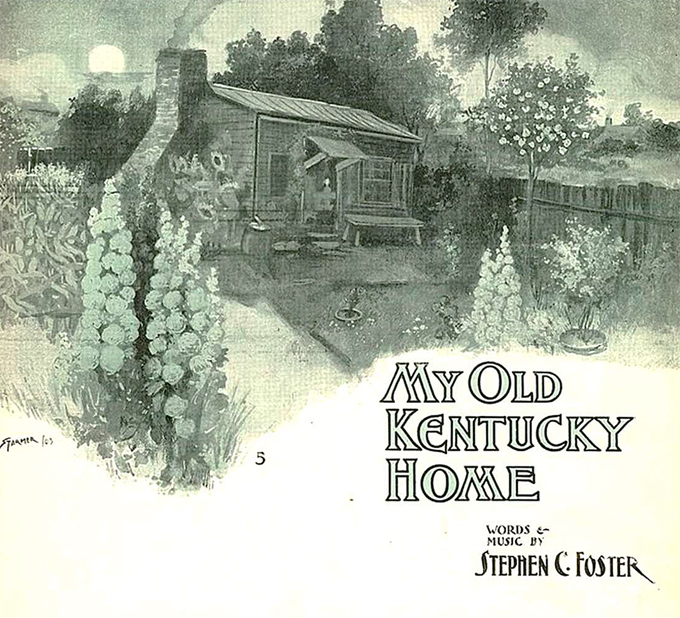They Changed the Song
Alan’s TTIM Stories #53
Jan Hinton became aware of a song contest. Florida desperately searched for a new state song. The elementary school music appreciation teacher went to her home recording studio and composed a winner, Florida, Where the Sawgrass Meets the Sky. Verse after verse boasts of the many attributes of her adopted state.
It’s one example of a long lists of attempts to update state songs to better reflect attributes and move away from inappropriate and downright racist lyrics, states have held in the name of tradition. It’s time to question the value of tradition, consider political correctness, promote respect, and overcome unjustified criticism of wokeness.
Let’s start where I live. The state song of Maryland, Maryland, My Maryland, was written by a Confederate sympathizer, James Ryder Randall, in 1861 after the Baltimore Riots at the beginning of the Civil War. Sung to the tune of O Tennenbaum, lyrics boldly announce disdain for the North:
“The despot’s heel is on thy shore”
“Sic semper!” same phrase screamed by John Wilkes Booth from the stage of Ford’s Theater after shooting President Lincoln.
“Huzza! She spurns the Northern scum!”
It served as the official state song between 1939 and 2021. Choirs sang the 3rd verse at the beginning of the Preakness leg of the Triple Crown, a tradition discontinued in 2020. Ten attempts were made to change the song, including rewritten lyrics. The Maryland General Assembly decided to can the song in 2021 in a bill signed by Governor Larry Hogan. It left Maryland without an official song.
Beautiful Ohio, by Ballard MacDonald, was originally a song of romance with two lovers in a red canoe, “Dreaming of a pair of eyes that looked in mine.”
The melody based on Song of India by Rimsky-Korsakov and Beautiful Dreamer by Stephen Foster, became the official state song of Ohio in 1969. In 1989, the lyrics were changed to sing about factories, cities, grain, and flowers.
Now a look into the amazing offensive state songs, so racially offensive the words will not be repeated in this piece.
Stephen Foster composed one of the most famous state songs, My Old Kentucky Home. Both chambers of the Kentucky Legislature changed offensive wording in 1986 using the word, “people.”
Florida’s state song goes by a couple names: Old Folks at Home (Way down upon the Swanee River), another offensive gem byStephen Foster, written in 1851. Swanee River was made the official state song in 1935 (a misspelling of Suwannee River – a place never visited by Foster). So offensive, Jeb Bush and Charlie Crist refused to have song played at their gubernatorial inaugurations.
As mentioned in the beginning, Florida Music Educators Association held a contest in 2007 to replace the state song. Jan Hinton’s song, Florida, Where the Sawgrass Meets the Sky, beat 242 other entries.
Wait, the story doesn’t end here. Not wanting to let go of tradition, the members of the Florida State Legislature held on the traditional Swanee River as the official state song and designated Florida, Where the Sawgrass Meets the Sky as the State Anthem.
Carry Me Back to Old Virginia (originally – Virginny), by James A. Bland, became an official state song of Virginia in 1940. Ready to replace the racially offensive song, new songs emerged: Our Great Virginia, the state’straditional song sung to the tune of Shenandoah, and the state official popular song – Sweet Virginia Breeze.
Once again, State Legislators unable to let go of a repugnant tradition, designated Carry Me Back to Old Virginia as “Song Emeritus” in 1997. Even in its retired status, the song hovers as a reminder of a troubled past.
A disturbing question arose while deep into research: What took so long? Changes in 1970, 1987, 1997, 2007, 2021 – bypassing the Civil Rights movements of the 1960s. Or is this insight into our current political situation of ignorance, insensitivity, and racism?
So, lift your voice and praise moonshine with a chorus of Rocky Top after every Tennessee Volunteer touchdown.
Trivia Notes:
Both Maryland and New Jersey are without an official state song
Massachusetts has seven official state songs
Not to be outdone – Tennessee has twelve state songs at last count – each in a particular category
Stephen Foster influenced three state songs of the past and present; John Denver influenced two: Rocky Mountain High (Colorado), Take Me Home, Country Roads (West Virginia)
Two interesting State Songs: Connecticut: Yankee Doodle, and Kansas: Home on the Range

Sources:
Netstate.com
Wikipedia
Leave a Reply